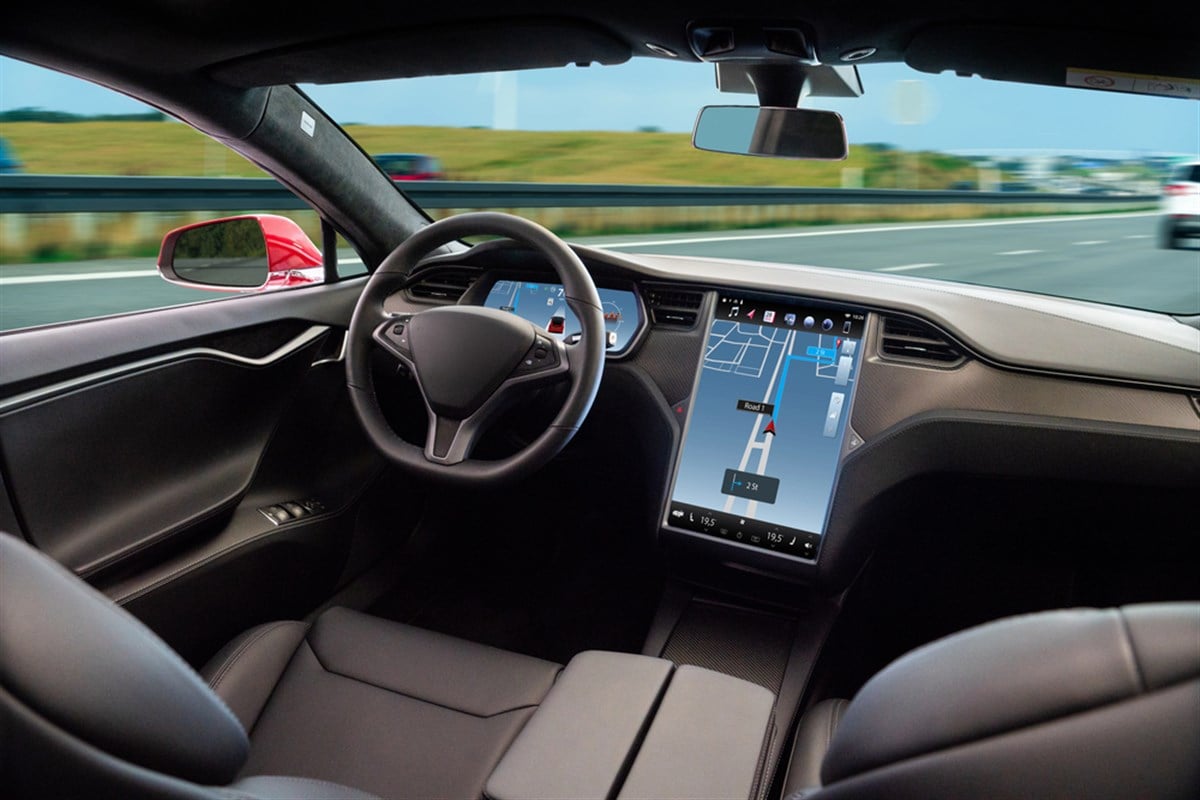
With the Trump administration taking over in January 2025, there has been much speculation about forthcoming changes, trends, and themes. With Tesla Inc. (NASDAQ: TSLA) CEO Elon Musk firmly embedded in Trump’s inner circle, there’s been speculation that self-driving or autonomous cars will see an accelerated regulatory framework paving the way for Robotaxis and self-driving cars hitting the roads sooner than anticipated. If that turns out to be the case, here are three stocks that will benefit from the widespread deployment of autonomous vehicles.
Mobileye: Preparing For an Autonomous Vehicle World
Leading advanced driver assistance system (ADAS) and autonomous technology company Mobileye Global Inc. (NASDAQ: MBLY) would be a key beneficiary of the deployment of autonomous vehicles. The company makes ADAS system-on-a-chip (SoC) systems that are already used in over 130 million vehicles worldwide. It operates in the auto/tires/trucks sector.
Their proprietary EyeQ SoCs use cameras to interpret and navigate the environment rather than radio detection and ranging (radar) or light detection and ranging (LiDAR). EyeQ systems are used to provide enhanced safety and driver assistance with functions like adaptive cruise control (ACC), lane keep assist and lane departure warning (LDW), parking assist, automatic emergency braking (AEB), traffic sign recognition (TSR), and forward collision warnings (FCW) which alerts the driver of a potential collision with another car or obstacle ahead.
Mobileye's SuperVision: The Bridge to Autonomous Driving
While earlier EyeQ focused primarily on safety features, Mobileye’s EyeQ SuperVision takes it to the next level, focusing on advanced supervised autonomous hands-free driving. It's a bridge between semi-autonomous vehicles, which are deemed level 2 systems, and fully autonomous vehicles, which are level 5. SuperVision utilized cameras, sensors, rada,r and LiDAR for 360-degree perception. SuperVision systems generate more revenue and have higher margins. The company is deploying EyeQ5-based SuperVision systems in select ZEEKR Intelligent Technology Holding Ltd. (NYSE: ZK) electric vehicles (EVs) in China.
Mobileye Partners With Volkswagen for AVs
Mobileye has been testing its Mobility-as-a-Service (MaaS) Robotaxi product with partner Volkswagen AG (OTCMKTS: VWAGY) Commercial Vehicles in Austin, Texas and Hamburg, Germany, for several years. On March 20, 2024, Volkswagen ADMT announced an agreement with Mobileye on a fleet of autonomous vehicles (Avs) at scale using its ID.Buzz.Avs for mobility and transport services in Europe and the USA. Volkswagen is the first automaker to develop autonomous Level 4 service vehicles for large-scale production.
Ouster: 3D LiDAR for More Than Automotive, But Critical for Autonomous Driving
As a leading provider of digital LiDAR technology, Ouster Inc. (NYSE: OUST) sensors enable high-resolution and 3D mapping.
LiDAR is a remote sensing technology that utilizes laser pulses to create precision 3D maps of the surrounding environment by emitting rapid laser pulses and measuring the time for each pulse to return.
LiDAR Applications Beyond Automotive
Ouster sells its REV7 sensors that are used for applications ranging from warehouse and factory robotics and automation, mapping and surveying with drones and smart infrastructure deployment like smart cities. Ouster is also partnered with autonomous driving and Robotaxi development players like Waymo and Cruise, owned by General Motors Co. (NYSE: GM).
Generating Meaningful Revenue Growth in Robotics and Smart Cities
Ouster has been growing in non-automotive industries. The company reported Q3 2024 revenue of $28 million, up 26% YoY. GAAP gross margin rose over 2,400 bps to 38%, up from 14% in the year-ago period. Net loss was $26 million, down from $35 million last year. Ouster still has $154 million in cash and cash equivalents. Ouster shipped over 3,900 sensors in the quarter and over 100,000 sensors to date. The company expects Q4 revenue to range from $29 million to $31 million.
Ouster CEO Angus Pacala commented, “I’m proud of our third quarter results, which set new record levels of revenue, gross margin, and adjusted EBITDA. Our customers continue to adopt our REV7 sensors to harness enhanced range, accuracy, and precision. More customers are moving into production, with robotics and smart infrastructure deals representing the largest wins during the quarter.”
Pacala also noted that the company has focused on growing its installed software base and achieving its highest level of software-attached sales to date. Revenue was primarily driven by customers in the robotics and smart infrastructure verticals, which included use cases like mapping, perimeter security, and last-mile delivery.
Robotaxis Already Deployed on the Las Vegas Strip
Ouster has strategic partnerships like with Motional Inc., a leader in driverless technology. Motional has selected Ouster to outfit its Hyundai IONIQ-5 Robotaxis with Alpha Prime VLS-128 sensors through 2026, which are being used on the Las Vegas Strip in Las Vegas, Nevada.
Aurora Innovation: The Vehicle Agnostic Self-Driving System
Self-driving vehicle technology company Aurora Innovation Inc. (NASDAQ: AUR) was born from impressive pedigrees in autonomous driving. Its founders come from Alphabet Inc. (NASDAQ: GOOGL), Google's self-driving team, Tesla's Autopilot team, and Uber Technologies Inc. (NYSE: UBER) autonomous driving team. The company develops a complete self-driving system called Aurora Driver, which can be integrated into AVs to enable autonomous driving. The company raised $483 million to extend its runway into 2026. Aurora is partnered with Toyota Motor Co. (NYSE: TM), and OEMs include Peterbilt, Volvo, Kenworth, and Paccar Inc. (NASDAQ: PCAR).
Launching Aurora Driver in April 2025
Aurora Driver is comprised of a hardware kit that includes a computer and a suite of sensors (including radar, LiDAR and cameras) combined with a state-of-the-art perception, mapping, motion planning and simulation software automation stack. Aurora Driver for freight is coming to Texas. Aurora Driver will launch by deploying up to 10 driverless trucks, upon starting with one self-driving truck in commercial operations in April 2025. The second half of 2025 will focus on adding new lanes and expanding product capabilities and capacity to tend trucks by year's end.
